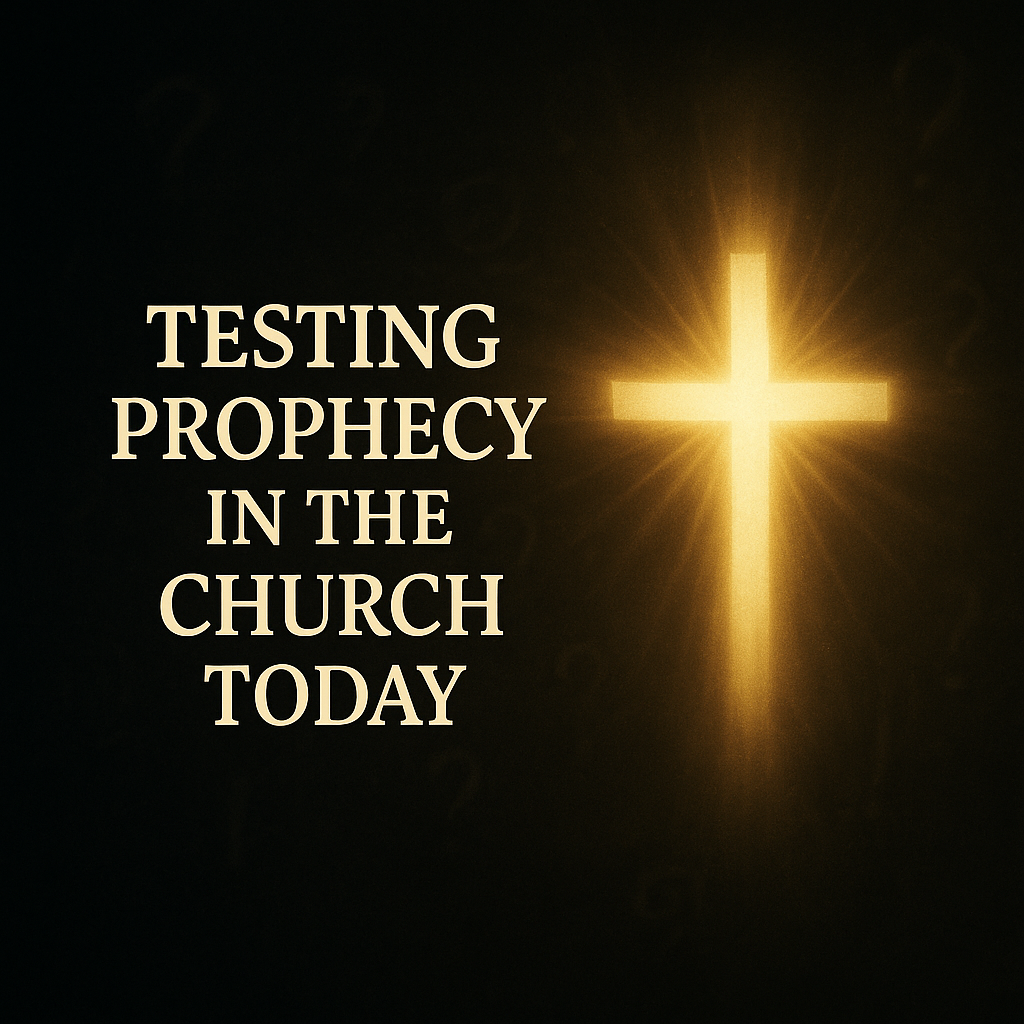⏱️ Estimated Reading Time: 3 min read
Testing Prophecy in the Church Today
Contending for the Word, September 14, 2025
Written by: Dave Jenkins
Introduction
Prophecy is a word that gets a lot of attention in the church today. Some claim to receive fresh revelations from God about personal guidance, the future, or world events. Scripture commands us, “Do not despise prophecies, but test everything, hold fast what is good” (1 Thessalonians 5:20–21).
Central Question: How should Christians test prophecies today?
What Is Prophecy?
In the Old Testament, prophecy was the inspired and authoritative Word of God delivered through His chosen messengers, for example Isaiah and Jeremiah. These words were binding and carried God’s full authority. When the prophets said, “Thus says the Lord,” they spoke infallibly.
In the New Testament, the apostles and prophets laid the once for all foundation of the church (Ephesians 2:20). Their writings are preserved in Scripture, which is complete, sufficient, and final (2 Timothy 3:16–17, Jude 3).
Why Do We Need to Test Prophecies?
False prophets have always existed, and they will continue to arise (Deuteronomy 13:1–5, Matthew 7:15, 1 John 4:1). God takes false prophecy very seriously. In the Old Testament, if a prophet’s words failed to come true, he was condemned as a false prophet (Deuteronomy 18:20–22).
How Should We Test Prophecies Today?
- By Scripture Alone: Any supposed prophecy must be measured against the clear, sufficient, and final authority of the Bible. If it contradicts God’s Word, it is false (Isaiah 8:20).
- By Accuracy: If someone claims to predict the future, the prediction must come true with complete accuracy (Deuteronomy 18:22). Anything less is not from God.
- By Fruit: True prophecy leads people to worship the true God and to live in holiness, not confusion or sin (Matthew 7:16–20).
- By Christ Centeredness: The Holy Spirit glorifies Christ (John 16:14). Messages that distract from the gospel or diminish Christ are not from God.
Why This Matters
Modern movements that treat prophecy casually, that allow errors, vague impressions, or failed predictions, contradict God’s standards. The Lord’s Word is perfect (Psalm 12:6), and He does not stutter. The church must not lower God’s standard for truth.
Conclusion
Today, the sure prophetic word we need is Scripture itself (2 Peter 1:19–21). God has spoken fully and finally in His Son (Hebrews 1:1–2). Our responsibility is not to chase fresh revelations, but to trust, obey, and proclaim the Word He has already given. If we test everything by Scripture, hold fast to what is good, and reject what is false, we will honor Christ and guard His church.
For more from Contending for the Word Q&A please visit us at Servants of Grace and at our YouTube.
Dave Jenkins is happily married to his wife, Sarah. He is a writer, editor, and speaker living in beautiful Southern Oregon. Dave is a lover of Christ, His people, the Church, and sound theology. He serves as the Executive Director of Servants of Grace Ministries, the Executive Editor of Theology for Life Magazine, the Host and Producer of Equipping You in Grace Podcast, and is a contributor to and producer of Contending for the Word. He is the author of The Word Explored: The Problem of Biblical Illiteracy and What To Do About It (House to House, 2021), The Word Matters: Defending Biblical Authority Against the Spirit of the Age (G3 Press, 2022), and Contentment: The Journey of a Lifetime (Theology for Life, 2024). You can find him on Facebook, Twitter, Instagram, Youtube, or read his newsletter. Dave loves to spend time with his wife, going to movies, eating at a nice restaurant, or going out for a round of golf with a good friend. He is also a voracious reader, in particular of Reformed theology, and the Puritans. You will often find him when he’s not busy with ministry reading a pile of the latest books from a wide variety of Christian publishers. Dave received his M.A.R. and M.Div through Liberty Baptist Theological Seminary.




